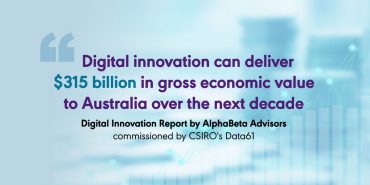7 tips for efficient project closure

While it’s crucial to set your project up for success, it’s also important to follow a process for closing it down. Formal project closure helps to avoid loose ends and provides an opportunity to review and learn from the project’s performance.
Projects by definition, no matter whether you are applying waterfall or Agile or even hybrid approaches, need to have an end, don’t they?
According to the PMBOK® Guide, PMI’s flagship publication, “A project is a temporary endeavor undertaken to create a unique product, service or result.”
Meanwhile, PRINCE2®, from AXELOS, says, “A project is a temporary organisation that is created for the purpose of delivering one or more business products according to an agreed business case.”
Yet we’ve all heard of those projects that seem to go on and on; where ‘we just need to do this’ becomes a constant refrain and the goalposts keep moving. You know the scenario – when ‘good’ money is often thrown after ‘bad’ just because so much has already been invested.
Whatever type of project, regardless of the project management approach being applied, it’s important to establish the need for project closure along with all the other expectations for the initiative. This applies whether your project has come to a natural end, or (for whatever reason) there’s a recommendation to prematurely close it out.
A formal closure process ensures everyone’s on the same page and that learnings – both positive and negative – are captured and utilised, which is crucial for planning and executing successful projects in the future.
Efficient project closure
Regardless of why your project is coming to a close, keep the following tips in mind to wrap things up as productively as possible.
- Clear conclusion. There needs to be clarity and agreement (between the project team, business, users, suppliers and other stakeholders) that the project has been completed, that it has achieved ‘enough’ or has nothing else material to contribute. Contrast that to the ‘finger pointing’ when no one is really sure who is accountable anymore. Is there final signoff? Final customer acceptance? Don’t let it just drift into BAU.
- Resource release. People and other resources need to be released, this includes suppliers, contractors, team members and any other partners. Sounds obvious doesn’t it, but people need to be aware that their time is no longer to be charged to the project and that they are free to work on other initiatives. This ensures no further costs are incurred and allows resources to be re-prioritised.
- Follow on actions. Ever come to the end of a project and you have that issue or risk that’s not a ‘showstopper’, but you can’t just sweep it under the carpet either. This is where having a summary of follow on actions, including an owner for each action, is vital. Such information may be useful for operations/support or even for a future project.
- Lessons learned. Lessons should have been reviewed and updated throughout the project. It is not about suddenly inventing them at the end. Remember to look at both sides: ‘What went well?’ and ‘What could be improved on in the future?’ Ensure all key learnings are passed on to the appropriate people (for example, your Centre of Excellence).
- Methodology review. It’s important to distinguish this from lessons as it focuses us on project management and delivery methods. For example, was it the first time you applied Agile principles? How well did this work with the project management team as well as the delivery team? Alternatively, maybe you implemented some recommendations from a project health check or even a maturity assessment – how did this go?
- Achievements to date. What was the project’s original intent? What have we achieved to date? In some projects, products may already be in operational use and benefits may already be accrued. Celebrate! It’s important to acknowledge your team’s hard work and take the opportunity to boost morale – doing so will help to ensure they’re fired up and ready to take on the next initiative!
- Future benefits. Ensure that benefits still to be realised after project closure are adequately planned for. Who will be accountable for the expected benefits? How and when will they be measured? What resources will be involved in benefit realisation and measurement? Projects exist to provide benefits to the customer, users and business – let’s make sure we deliver.
Next level assurance
To extract maximum value from your project closure process before the team disbands, it’s wise to include an independent post implementation review (PIR). This valuable assurance tool helps to formalise the review and evaluation component of project closure and ensure findings and lessons learned are properly documented and distributed.
However you choose to go about it – perhaps with assistance from your PMO or an external consultant – formal closure is certainly not a step you can overlook. Here you have a prime opportunity to review the successes, failures and challenges of the project and identify areas for improvement going forward.
In this regard, why not consider taking your assurance activities to the next level with PM-Partners’ Continuous Assurance service? Leveraging our best practice assurance methodology (set up for success, health checks, PIRs) we connect valuable assurance outputs with an ongoing improvements roadmap to proactively drive performance uplift where you need it most. In this way, you can break the cycle of cost overruns and delivery failure and help to ensure that both present and future projects close out as successful ones.
Keen to know more about project closure or PM-Partners’ Continuous Assurance approach? Contact our team of experts today or call 1300 70 13 14.
PMI is a registered mark of the Project Management Institute, Inc.
PRINCE2® is a registered trade mark of AXELOS Limited, used under permission of AXELOS Limited. All rights reserved.

About The Author
John Porta
Senior Principal Consultant PM-Partners
John has more than 25 years’ management and executive experience in portfolio and programme management, business transformation, roadmap development and executive leadership.
His career spans multiple sectors and includes senior management or executive positions at Toyota, Toll Group and CEVA logistics and extensive consulting experience with Olsam Consulting and Xact Solutions.







